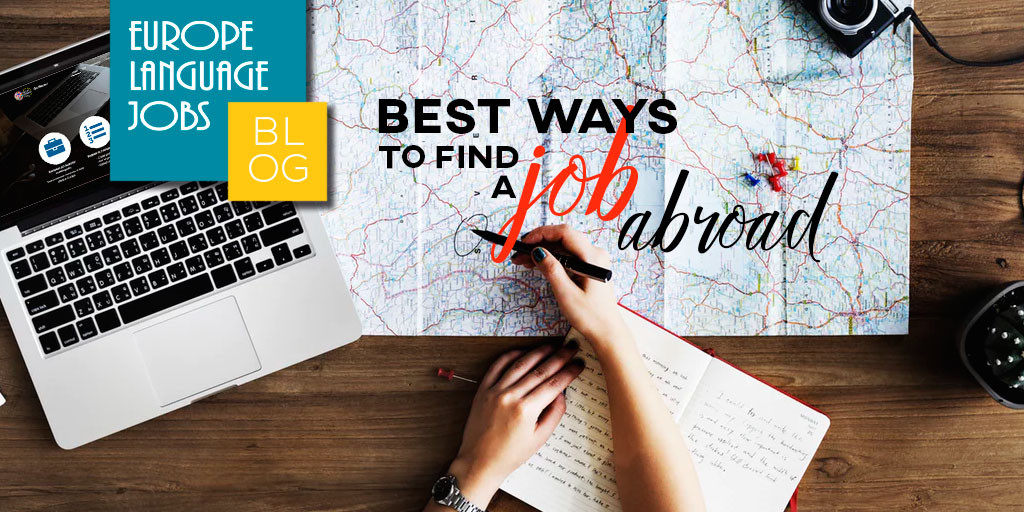For many people, working abroad is more than just a career goal—it’s a life-changing job dream. The thought of living in a new country, exploring unfamiliar cultures, and gaining international exposure is exciting. But if you’re just starting your career or you don’t yet have formal work experience, you may wonder: Is it even possible to land a job abroad without experience?
The good news is yes—it is possible. Many countries, industries, and employers are open to hiring international workers who are motivated, adaptable, and willing to learn. While not every role will be available, there are countless entry-level opportunities that don’t require years of professional experience.
This article will guide you step by step on how to get a job abroad with no experience—from identifying suitable industries, building transferable skills, applying strategically, and navigating visa requirements to making yourself stand out as a strong candidate.

Why Employers Hire Workers with No Experience
It might surprise you, but many international employers actively recruit candidates with little or no experience. Here’s why:
- Labor shortages – Some industries struggle to find enough local workers (e.g., hospitality, agriculture, healthcare support).
- Entry-level demand – Certain jobs are designed for people starting out.
- Lower training costs – Employers can train you according to their standards.
- Motivation matters – Employers value attitude, adaptability, and willingness to learn.
- Cultural diversity – Many companies want employees from different backgrounds for global perspectives.
Step 1: Identify Jobs Abroad That Don’t Require Experience
Not all jobs require years of expertise. The key is to target industries and roles that welcome beginners.
Popular Industries for No-Experience Jobs Abroad
- Hospitality & Tourism
- Hotel receptionist, waiter, barista, kitchen staff.
- Countries: UAE, Maldives, Spain, Italy, Thailand.
- Au Pair / Childcare
- Live with a host family, provide childcare in exchange for salary and housing.
- Countries: USA, Germany, France, Netherlands.
- Teaching English Abroad (TEFL)
- Some programs accept people without teaching experience (you may need a short TEFL course).
- Countries: China, South Korea, Vietnam, Mexico.
- Seasonal / Farm Work
- Fruit picking, vineyard work, or harvest jobs.
- Countries: Australia, New Zealand, Canada.
- Internships & Traineeships
- Short-term opportunities for skill development.
- Countries: Germany, Singapore, UK.
- Retail & Sales Jobs
- Entry-level roles in shops, supermarkets, and malls.
- Countries: UAE, Qatar, Malaysia.
- Volunteering (with stipends)
- NGOs and international organizations sometimes cover accommodation and provide allowances.
- Countries: Africa, Asia, South America.
Step 2: Build Transferable Skills That Employers Value
Even if you don’t have formal work experience, you likely already possess skills that employers need. The trick is to highlight them.
Examples of Transferable Skills
- Communication – Ability to interact with customers and colleagues.
- Problem-solving – Handling challenges creatively.
- Teamwork – Working well in groups.
- Adaptability – Adjusting to new cultures and environments.
- Language skills – Speaking English or other global languages.
- Basic computer literacy – Email, Microsoft Office, or point-of-sale systems.
How to Build Skills Quickly
- Take free online courses (Coursera, Udemy, edX).
- Volunteer locally before applying abroad.
- Work part-time in customer service or retail.
- Learn a second language.
Step 3: Choose the Right Destination
Some countries are more welcoming to foreign workers with no experience than others.
Best Countries for First-Time Job Seekers Abroad
- Australia & New Zealand – Popular for working holiday visas, seasonal jobs, and farm work.
- Germany – Au pair programs and apprenticeship opportunities.
- Japan & South Korea – Teaching English with minimal requirements.
- UAE & Qatar – Hospitality and retail jobs.
- Canada – Seasonal agriculture and entry-level hospitality.
When choosing a destination, consider:
- Visa options.
- Cost of living.
- Language requirements.
- Availability of entry-level jobs.
Step 4: Research Visa Options
Work visas vary by country, but there are several visa categories suitable for people with no experience.
Common Visa Pathways for Beginners
- Working Holiday Visa – Allows young people (usually 18–30) to travel and work short-term.
- Seasonal Work Visa – For agriculture, tourism, and temporary roles.
- Au Pair Visa – For childcare and cultural exchange.
- Student Visa with Work Rights – Study abroad while working part-time.
- Entry-Level Work Permits – Some countries grant permits for specific industries.
Always check the official embassy website for requirements.
Step 5: Find Job Opportunities Abroad
Landing a job abroad with no experience requires smart job searching.
Where to Find Jobs
- International job boards: Indeed Worldwide, Glassdoor, Monster.
- Country-specific sites: Seek (Australia), GaijinPot (Japan), EURES (Europe).
- Hospitality portals: Hosco, CatererGlobal.
- Au pair platforms: AuPairWorld, GreatAuPair.
- Government portals: Many countries list seasonal jobs.
Networking Tips
- Join Facebook expat groups.
- Use LinkedIn to connect with recruiters abroad.
- Ask contacts who already work overseas.
Step 6: Create a Strong CV Without Experience
Even if you lack professional experience, your CV/resume can still stand out.
How to Structure Your CV
- Personal Information – Name, contact details, nationality.
- Career Objective – A short statement about your motivation.
- Education – Degrees, diplomas, or certifications.
- Transferable Skills – Highlight abilities like teamwork, adaptability, and communication.
- Volunteer Work / Internships – Showcase any unpaid experience.
- Languages & IT Skills – Emphasize global languages or digital skills.
Pro Tip: Customize your CV for each job application.
Step 7: Write a Convincing Cover Letter
A well-written cover letter can help you compensate for lack of experience.
Tips for a Great Cover Letter
- Express enthusiasm for working abroad.
- Highlight your adaptability and willingness to learn.
- Emphasize cultural openness.
- Mention transferable skills.
- Keep it concise (1 page).
Example:
“Although I am at the beginning of my professional career, I bring strong communication skills, flexibility, and the motivation to adapt to new environments. I am eager to contribute to your team and learn quickly on the job.”
Step 8: Prepare for Interviews
If your application is successful, you’ll likely be invited for an online interview.
Common Interview Questions
- Why do you want to work in this country?
- What skills can you bring to this role?
- How do you handle challenges?
- Are you comfortable working in a multicultural environment?
Interview Tips
- Research the company and country.
- Show enthusiasm and cultural awareness.
- Be honest about your lack of experience but emphasize your motivation.

Step 9: Overcome Common Challenges
Challenge 1: Visa Restrictions
Solution: Target countries with flexible entry-level visa options.
Challenge 2: High Competition
Solution: Apply early and to multiple roles.
Challenge 3: Lack of Language Skills
Solution: Take beginner language classes before moving.
Challenge 4: Cultural Adjustment
Solution: Research local customs and expat communities.
Step 10: Consider Alternative Pathways
If you can’t get a job directly, there are other routes that can lead to work abroad.
- Study Abroad First – Many students find part-time jobs and then transition to work permits.
- Internships – Gain experience abroad, then apply for full-time jobs.
- Volunteer Abroad – Some programs include stipends or living allowances.
- Remote Work for Local Employers – Start online and later relocate.
Success Stories: Real Examples
Case 1: Maria, Hospitality Worker in Dubai
Maria from the Philippines had no work experience but applied online for a hotel receptionist role in Dubai. With a simple CV highlighting her communication skills and willingness to learn, she secured a job and was trained on arrival.
Case 2: David, English Teacher in South Korea
David from Nigeria had no teaching background but completed a short online TEFL course. Within months, he was hired by a school in Seoul and gained international teaching experience.
Case 3: Anna, Au Pair in Germany
Anna from Brazil wanted to experience Europe. She applied on AuPairWorld, matched with a host family in Germany, and spent a year working while improving her German.
Practical Tips to Increase Your Chances
- Start small – Be open to seasonal or temporary work.
- Network actively – Many expat jobs are filled through referrals.
- Stay flexible – Be willing to work odd hours or relocate quickly.
- Learn continuously – Take online certifications.
- Keep trying – Rejection is normal; persistence pays off.
The Future of Entry-Level Jobs Abroad
Global labor shortages mean more opportunities for beginners. Trends include:
- Digital nomad visas for remote workers.
- Growing demand in hospitality and tourism post-pandemic.
- Apprenticeship programs in Europe.
- Youth mobility schemes connecting countries for work exchanges.

Final Thoughts
Getting a job abroad with no experience may seem daunting, but it’s absolutely achievable with the right approach. The key is to focus on industries that hire beginners, transferable skills, and visa options.
Remember, employers often value attitude over experience. If you show adaptability, cultural openness, and eagerness to learn, you can build an international career even without a long resume.
Quick Recap of Steps:
- Target industries open to beginners.
- Build transferable skills.
- Choose the right destination.
- Research visa options.
- Apply through trusted job portals.
- Craft a strong CV and cover letter.
- Prepare for interviews.
- Overcome challenges with flexibility.
- Consider alternative pathways like study, internships, or volunteering.
- Stay persistent and motivated.
Working abroad without experience is not just possible—it’s a life-changing opportunity that can open doors to new skills, cultures, and long-term career growth.